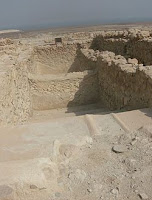"Safe? Who said anything about safe? Of course he isn't safe. But he's good. He's the King, I tell you." Aslan the Lion in C.S. Lewis' book The Lion, the Witch and the Wardrobe is a "Christ figure" who understands that there are times that we are not called to be "safe," but we are always called to be Good.
Jesus was not "safe" when He drove the moneychangers out of the Temple. He was not "safe" when He healed and forgave people in front of those who did not understand who He was and where His power came from. He was not "safe" when He talked with a Samaritan woman and a Phoenician mother. He was not "safe" when He dealt with a Gerasene who was possessed, and a stranger's pigs went off the cliff. He wasn't "safe" when He hung out with tax collectors and other outcasts under the nose of the Establishment types.
He was not "safe" when He resurrected Lazarus, entered Jerusalem on a borrowed donkey, and found Himself in front of a hostile Sanhedrin, a Roman governor, and hanging on a cross.
Three days later, He was safe--but His followers were not; 10 of the disciples, as well as Stephen and Paul and many more died painfully. Over the centuries, the world has killed millions of His followers.
We are not always called to be martyrs, but there are other times we should not be "safe." Jesus said that whoever harms a child is not "safe". Even today, there are times, places and situations that are not "safe" for those who stand up for those who are in danger.
 This weekend we are reminded of those who have endured unsafe places so that others might be safe. May we understand that as long as there is Evil in the world, "O! thus be it ever, when freemen shall stand. Between their loved home and the war's desolation!" Are we thankful for those who have put others' safety ahead of their own?
This weekend we are reminded of those who have endured unsafe places so that others might be safe. May we understand that as long as there is Evil in the world, "O! thus be it ever, when freemen shall stand. Between their loved home and the war's desolation!" Are we thankful for those who have put others' safety ahead of their own? 

